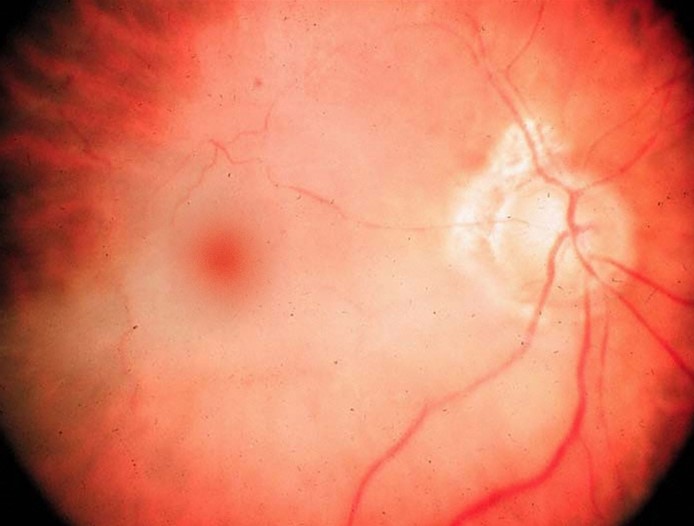A 64-year-old man comes to the emergency department due to painless loss of vision in the right eye. The patient's symptoms started suddenly several hours ago and have persisted. He has had no trauma or any similar episode in the past. He has a history of coronary artery disease, atrial fibrillation, and type 2 diabetes mellitus. Blood pressure is 144/86 mm Hg and pulse is 92/min. Cardiovascular examination reveals irregularly irregular rhythm with no murmurs, no peripheral edema, and slightly diminished pedal pulses in both feet symmetrically. Visual acuity in the right eye is hand motion only and normal in the left eye. Funduscopic examination of the right eye is shown in the image below.  Which of the following is the most likely cause of this patient's loss of vision?
Which of the following is the most likely cause of this patient's loss of vision?
Definitions:
Viral Pneumonia
An inflammation of the lungs caused by infection with a virus, resulting in difficulty breathing and other respiratory symptoms.
T Lymphocytes
A type of white blood cell integral to the immune system, playing a key role in the body's defense against pathogens by recognizing and attacking infected cells.
Cancer Cells
Cancer cells are cells that grow uncontrollably, divide without stopping and can spread to other parts of the body, disrupting normal bodily functions.
Macrophage
A form of white blood cell which performs the action of engulfing and digesting cellular remnants, alien substances, bacteria, and tumor cells via a process termed phagocytosis.
Q31: A 54-year-old man comes to the office
Q121: A 45-year-old woman comes to the office
Q183: A 40-year-old man comes to the office
Q228: A 52-year-old man comes to the physician
Q231: A 62-year-old woman has double vision, especially
Q257: A 46-year-old hospitalized man experiences worsening dyspnea
Q342: A 36-year-old male is undergoing a major
Q374: A 57-year-old man is seen in the
Q381: A 65-year-old man comes to the emergency
Q436: A 17-year-old girl is brought to the